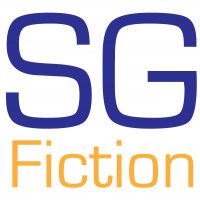2020 has been a tough year for most people, but here are my tips on how to reboot your writing inspiration for a new year.
In this Writing Inspiration article, you will find tips in the following areas:
- Why exhaustion can hamper your progress as a writer and looking after your health is vital,
- How minimising electronics can help remove unwanted distractions and help hone your focus on any work in progress,
- How slowing down can help your next story to find you, meaning you can be still enough to allow that next inspirational idea to sprout a shoot in your mind.
Read the rest of the Writing Inspiration article and learn how to be inspired for 2021.
Capturing fresh writing inspiration can be like catching smoke. Pretty much every writer has found it hard to strike the match and get their creative fires burning. During normal times, this is common. However, trying to boost one’s creativity through a year with a pandemic, financial stresses and remote learning has meant many writers have been unable to attack 2020 as they had initially planned at the beginning of the year.
This year, I have found the writing process incredibly challenging in more ways than one. Whether it has been homeschooling my two children when schools were closed or growing my private tuition and copywriting businesses, I have had less time to write than I would have hoped. 2020 delayed any plans I had to finish the IRIS Trilogy or Hexingham Chronicles before 2021 came around.
With many writers finding themselves in the same position, I thought I would consider how we can best focus on firing up our writing inspiration in the last month of the year. If we can get ourselves into the right frame of mind, we should be able to kick off 2021 with a hunger and desire to complete any projects that fell by the wayside the year before.
In this creative writing blog article, I will share tips on rebooting our writing inspiration for the year ahead. Whether you are a seasoned writer or someone new to writing, you will definitely be able to use some of the ideas I share below to make 2021 the best year yet for your writing.

Exhausted? Don’t Look For Writing Inspiration!
There is little hope for us as writers if we run ourselves into the ground. Sometimes, this exhaustion can come from our ‘day job’, our family life or stresses brought about by a global pandemic. It has to be recognised that our lives are incredibly complicated and, if we are writing as a ‘side hustle’, it is natural for other responsibilities to take over.
Suppose this sounds like you and you have grown increasingly frustrated at the lack of time available to put your story onto paper. In that case, it is vital to accept the situation and do your utmost to make at least some time to write even a few hundred words two or three times a week. By doing so, you will at least be able to tell yourself that you have made a little progress and those few hours can be a much-needed rest-bite from family life or your hectic career.
Besides other life pressures removing our energy and attention from our latest fiction book or collection of poetry, some writers may have been extraordinarily productive and written a book or two. With extra time at home and some young people finding themselves studying away from university campuses, there will undoubtedly be thousands of books out there that will have been penned throughout Covid lockdowns.
Unfortunately, writer burnout is something many of us have experienced at some point. When I wrote the second draft of Inside Iris, I went straight into writing the first draft of Anna’s Awakening. At the time, I was burning with creativity and had the story in my mind, so I felt it was important to strike while the iron was hot. However, by the end of Anna’s first draft, I found myself burnt out from the process. I tried to plan some areas of the final part of the IRIS Trilogy and wrote utter nonsense in the planning.
It was clear that writing inspiration had deserted me, and I was left a bungling mess.
As a writer, you are more important than your books. The books you writer are a product of your imagination and creativity. Therefore, if you burn yourself out, the product that comes out the other end will not reflect the creative talents you possess. Remember, writing a marathon, not a sprint, and it is up to you to pace yourself by looking after your body and mind.
Minimise Electronics
In the modern world, electronic devices are some of the most significant distractions that surround us. Every day, we are faced with dozens of both essential and non-essential tech that do their utmost to usurp our attention from much more important and less enjoyable tasks.
The fact that I’m writing this article on my Macbook Pro surrounded by two additional monitors may come across as ironic. However, as a writer, this is vital to my work as a copywriter and blogger, and I can stick to my professional writing goals.
On the other hand, while we are on devices, like iPads and laptops, we need to be disciplined about how they are used. Therefore, procrastinators and those who are addicted to social media can find themselves opening up a second internet tab and, before they know it, they start scrolling Facebook and Instagram feeds. This means such writers need to make a concerted effort not to allow such habits to creep into their ‘writing time.’
We all understand the vital role that social media networks play in the modern world of writing as an independent or self-published writer. Yes, we need to promote ourselves and share glimpses of what we do ‘behind the scenes’ on a daily basis. However, this doesn’t mean that we need to find excuses to post tweets every five minutes or film Tik-Tok dances three-to-four times a day.
Your writing time is just that. You need to sit down to contribute to the story you wish to tell for the time you have allotted. This will give you much more satisfaction than superficial social media posts and, in turn, may provide you with valuable content to share with your followers online.
Why not sit down to your laptop next time you write and turn off your mobile phone, limit the app usage on your computer and focus on the story before you. By minimising the electronic devices that could cause distraction, you will be much more productive and be one step closer to unlocking that writing inspiration.

Allow Your Next Story To Find You
Sometimes, the best stories are those that come out of the blue. They aren’t sought after. They aren’t tracked and hunted for, like some form of prey. Instead, they can be likened to the most infinitesimal timid creature that we can only see when we slow down and appreciate our surroundings.
Unfortunately, in the modern world, we have little time to slow down, pause and consider what is around us. With the need to rush from point A to point B, we sometimes wear blinkers and cannot take any potential writing inspiration from our daily lives.
Ideas for some of the most influential books written in the last hundred years have come to their author out of a momentary coincidence. Whether the writer was marking and grading students’ papers, like J.R.R. Tolkien, or an incredibly long train journey, like J.K. Rowling, those sparks of ideas ignited the creativity of some of the greatest writers ever.
By combining the two tips above with this third, you will allow for a quieter environment that could be conducive to your next moment of writing inspiration to find you. In the peace created by shutting out the noise created by social media and our own turbulent minds, we can take stock of what inspires us and allow that flame to consume us once more.
Writing Inspiration: The Takeaway
Writing inspiration is something that we are unable to bottle and save up for a rainy day. It is also a timid creature that can be scared off easily by noisy children, homeschooling and changes of circumstances brought about by a pandemic.
If I were to rate my own 2020, I would have to say that finishing the IRIS Trilogy and Hexingham Chronicles were lower on my list of priorities. However, as 2021 approaches, I will strive to complete both books and complete Iris’ story once and for all.
If you are a writer who has had a below-par 2020, use 2021 to get your creative journey moving again. Put the train back on the track and set some SMART targets to achieve what the pandemic took from you.
Find that writing inspiration and share its fruit with the world.

